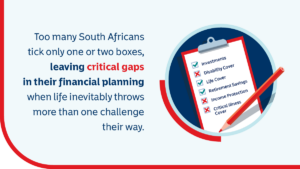Major international companies send urgent message to South Africa

A global initiative that includes over 100 companies with operations in South Africa says the government needs to urgently implement policy reforms to adopt renewable energy.
The RE100 is the global corporate renewable energy initiative bringing together hundreds of large businesses committed to using 100% renewable electricity by 2050.
Its members include Apple, Deloitte, KIA, Microsoft, Meta, Nike, PwC, Samsung, Starbucks and the South African-headquartered Investec.
The RE100 and the National Business Initiative (NBI) said that urgent policy implementation is needed to unlock South Africa’s renewable potential, meet corporate demand, and tap into corporate renewables investment.
Over 100 member companies with operations in South Africa have set a target to use 100% renewable energy by 2050—a deadline which is approaching quickly.
It noted that the rapid ramp-up of renewable energy is crucial for energy security, economic growth and competitiveness, and achieving the nation’s climate goals.
The group has called on the South African government to speed up electricity market reforms and set clear renewable energy goals.
It also called on the government to enable direct corporate procurement through wheeling, improve the grid, and improve approval processes.
The companies want the government to offer more green energy options for businesses of all sizes.
RE100 said that these measures are critical to increase corporate investment in the country and drive the energy transition.
It added that the sector is ready to help make the switch so that the companies involved can also meet their own renewables goals.
About 80% of South Africa’s electricity comes from coal, with the private sector being the largest consumer.
However, recent polls show that 95% of South African business leaders support transitioning from fossil fuels. 80% would prefer government investment in renewables over fossil fuel infrastructure.
What South Africa needs to do
The RE100 recomendations are a product of extensive consultation with businesses, energy technical experts, industry bodies, cities, provinces, and key national policymakers.
“South Africa has an enormous opportunity to lead on renewable electricity in Africa, which could become an engine for job growth and economic prosperity,” said Ollie Wilson, Head of RE100.
“Corporate demand for renewables has never been stronger, and they’re ready to invest in countries keen to partner with them on that journey.”
Wilson noted that the benefits of renewables are manifold, ranging from energy security to international competitiveness.
South Africa has progressed via the Energy Action Plan, the Electricity Regulation Amendment Act, and the South African Renewable Energy Masterplan (SAREM).
That said, fully implementing the plans and reforms is essential for companies to meet their net-zero goals.
“South Africa’s energy transition is not only a climate imperative, it’s an economic one,” said Shameela Soobramoney, CEO of the National Business Initiative (NBI).
“These reforms will boost investor confidence, strengthen our grid and energy security and unlock a wave of private sector-led innovation and green job creation.”
The RE100 and NBI policy aims to create a fair, transparent, competitive electricity market that supports a just energy transition. The five topline policies are as follows:
- Accelerate electricity market reform to enable competitive renewables procurement.
- Strengthen integrated planning and renewable energy-based electricity targets to guide investment.
- Enable and scale direct corporate procurement through wheeling and standardised Power Purchase Agreements (PPAs).
- Fast-track the roll-out of transmission infrastructure and grid connections and streamline project approvals.
- Expand voluntary green power options.
The group noted that public-private partnerships are critical to driving positive policy change and would increase access to affordable, reliable, renewable electricity for all consumers in the country.





















